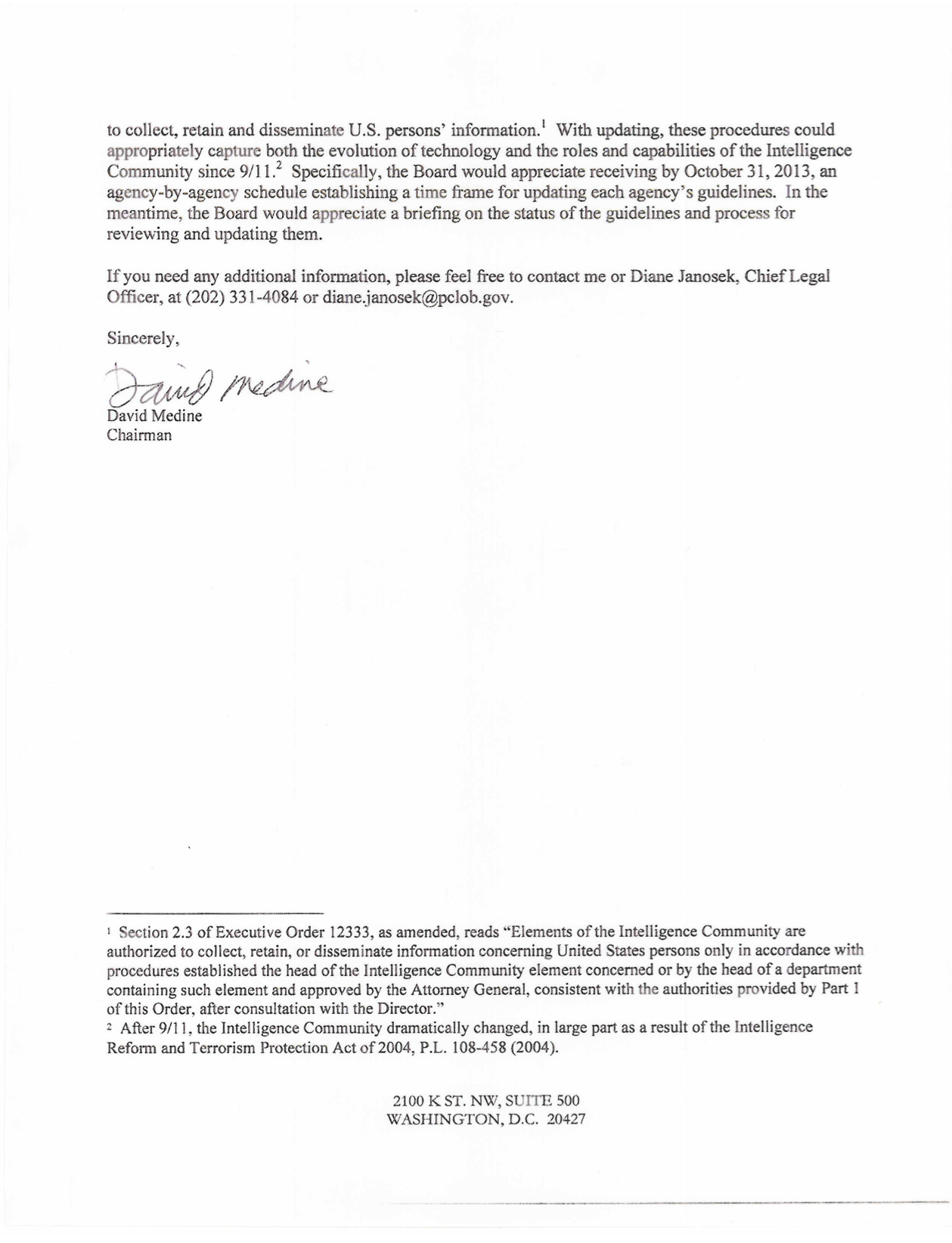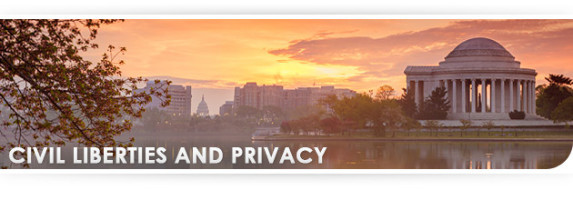
But there would be no storehouse, private or public, of telephone data beyond what the phone companies keep in the course of their normal business activities. Instead federal agencies would be able to obtain phone and other records under court orders in cases containing an individualized suspicion of wrongdoing. On January 23, 2014, the board released its report, recommending the US end bulk data collection. Report External videoĭavid Medine, chair of PCLOB, on surveillance program Publications of the documents by The Washington Post and The Guardian began in June 2013. These leaks were largely the work of Edward Snowden, a Booz Allen Hamilton employee with access to a wide range of top secret documents. While the program's nominal focus was on foreign nationals, the disclosures also revealed the large-scale surveillance of communications by United States citizens.
#PRIVACY AND CIVIL LIBERTIES OVERSIGHT BOARD SERIES#
The Board's report follows a series of highly publicized leaks about the operations of the global surveillance program conducted by the National Security Agency in the United States working with a number of other countries (see Five Eyes). Main article: Global surveillance disclosures (2013–present) Board chairman David Medine was finally confirmed in May 2013 in the wake of the Snowden disclosures in a party-line vote with 53 Democrats supporting and 45 Republicans opposing. Four members of the board were nominated by President Barack Obama in 2011, and confirmed by the Senate in August 2012.

1), beginning in January 2008, as an independent agency with appointments subject to Senate confirmation. The board was then reconstituted under the Implementing Recommendations of the 9/11 Commission Act of 2007 (H.R. Subsequently, member Lanny Davis resigned in protest over the board's lack of independence, citing "extensive redlining by Administration officials of the board's first report to Congress" that was accepted by the other members. maintained that the board appeared to be a presidential appendage, devoid of the capability to exercise independent judgment and assessment or to provide impartial findings and recommendations", according to the Congressional Research Service.

As these members served at the pleasure of the President, "Critics. It was initially composed of a chair, vice chair, and three other members. Director of National Intelligence also has the power to override requests "to protect the national security interests of the United States" Ī report by former members of the 9/11 commission in December 2005 noted there was "little urgency" in creation of the board, whose first meeting was in 2006. Attorney General's discretion "to protect sensitive law enforcement or counterterrorism information or ongoing operations." The U.S. To carry out these roles, the board does not have subpoena power, but is able to request subpoenas subject to the U.S. The role of the board is to provide advice and review of whether adequate supervision, guidelines, and oversight exist and to "continually review" regulations, policies, procedures, and information sharing practices to ensure privacy and civil liberties considerations are protected. The Privacy and Civil Liberties Oversight Board was first chartered under the Intelligence Reform and Terrorism Prevention Act of 2004. The Privacy and Civil Liberties Oversight Board report on mass surveillance was issued in January 2014 in light of the global surveillance disclosures of 2013, recommending the US end bulk data collection.


 0 kommentar(er)
0 kommentar(er)
